Since 1996, the “Scream” franchise has been the touchstone for the new era of screen entertainment wherein audiences give an increasing amount of feedback to the creators – and that feedback is increasingly heard and adopted. We learned it was fine to speak in meta terms and drop pop-culture references thanks in part to the original trilogy (1996-2000).
While 2001-10 marked a downtime, a fourth film then commented on the remake-driven Naughties in 2011. Three seasons of “Scream: The TV Series” were by our side for the 2010s, a breakthrough decade for horror TV and murder-mystery serials.
Jamie Kennedy’s Randy was an idiosyncratic geek in his day; if you wanted to know the Rules of Horror Movies, you looked to him, not the Internet (because it barely existed). Now, amid the requel series, everyone is Randy. If you were to spout your knowledge of slasher tropes to a cross section of strangers today, there’s a good chance they will be on the same page. In fact, they might accuse you of stating well-known information.
Here’s a look back at the six films and three TV seasons of a franchise that has served as a guide and critic as society deepened its relationship with pop culture till society essentially became pop culture (and vice versa). Rankings are from worst to first. Click on each header for a fuller review. SPOILERS FOLLOW.
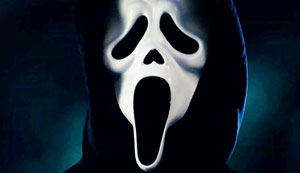
9. “Scream: The TV Series” Season 3 (2019, six episodes, VH1)
The third season, a three-night burn-off miniseries subtitled “Resurrection,” represents the franchise at its most confused. It brings back the Ghostface mask and Roger L. Jackson’s voice (the first two seasons used a slightly different mask and voice), seemingly to target O.G. fans. Yet The Rules are the same as Randy’s (the TV series exists in a different continuity), suggesting Season 3 is targeting a new generation of fans.
The idea of a twin (RJ Cyler) taking his deceased brother’s identity and none of his family noticing is the most absurd bit of illogic prior to “Scream VI.” But even this worst “Scream” entry isn’t total garbage. Its opening sequence features a funny feedback loop to “Scary Movie” (the “Scream” parody saga) with a fake knife and a fake breast. And Rules-spouter Beth (Giorgia Whigham) is a daring (if not totally believable) choice as the killer.
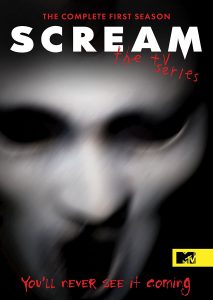
8. “Scream: The TV Series” Season 1 (2015, 10 episodes, MTV)
The TV series has good pedigree out of the gates, coming from Jill Blotevogel, creator of one of the rare slasher TV series before this, “Harper’s Island.” But it’s handcuffed, using an altered mask and voice, moving from Woodsboro to Lakewood, and being set in a different continuity. This creates a bizarre, unappealing alternate reality where the pop-culture nerd (John Karna as Noah) can’t reference “Stab” films and the rise of “meta.” The show aims for a wide audience rather than treating us as insiders the way Wes Craven (director of films 1-4) and Kevin Williamson (writer of films 1, 2 and 4) did.
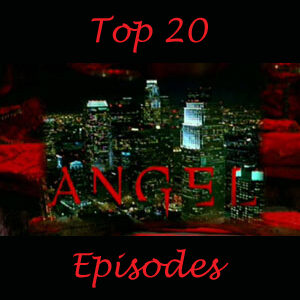
Still, it’s not all bad: A great opening scare moves “Scream” into the smartphone era, as a bikini-clad victim-to-be (Bella Thorne) can’t call 911 on her slippery device. Phones are never your friend in this saga, no matter how high the tech. Although I complained about a coldness from the cast at the time, Noah and friend Audrey (Bex Taylor-Klaus) do stick in my memory. The season ends in a smart way by only revealing one of the two killers, thus serving as both a conclusion and a cliffhanger.
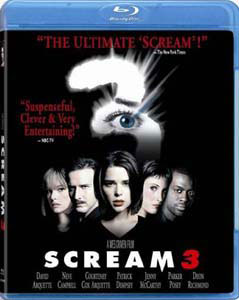
7. “Scream 3” (2000)
This is everyone’s pick for the worst movie, and while it’s tempting to be a contrarian, I can’t deny its problems. It introduces sci-fi (the instant-voice changer) and fantasy (Sidney’s visions) into the saga; granted, this isn’t as bad as the time travel in the “Stabs.” Given the vibrant and funny portrayal of the Hollywood cash-grab filmmaking process, the reveal of yet another killer with a secret past falls flat. What’s more, nearly a quarter-century later, we still don’t know who the second killer is! I guess we have to accept that canonically there was only one, despite scenes where Roman (Scott Foley) could not have done the murder.
I suppose it’s appropriate that on-set rewrites are a core theme of “Scream 3,” considering that the film itself seems hurt by rewrites. While Craven directs his usual strong scare pieces, Ehren Kruger’s writing isn’t up to Williamson’s level, particularly when he bungles his way through “rules of horror trilogies.” (Up to this point, there hadn’t been a horror trilogy, in the sense of a story pre-planned to be told over three films.)
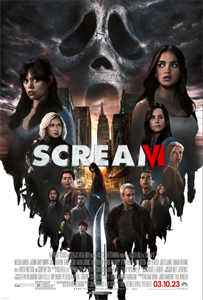
6. “Scream VI” (2023)
This is the saga’s best-looking non-Craven entry, shot in a Montreal standing in for New York, and it takes advantage of a big-city scope for thrilling sequences such as the horizontal ladder escape. The opening sequence is outstanding, from the delightfully awkward First Girl (Samara Weaving) to Ghostface taking his mask off. It’s still strong for much of its run, built on the loving relationship between sisters Sam (Melissa Barrera) and Tara (confirmed 2020s Scream Queen, Jenna Ortega).
So why does it rank so low? Because it has the worst final act of anything in this series. It’s nuts (even by the standards of “just go with it”) that all of these professional and amateur sleuths would be oblivious to the identities of the family members of Richie. Also, the Rules get strained to the breaking point, as Mindy (Jasmin Savoy-Brown) spouts generalities and falsehoods rather than making a studious attempt to analyze cinematic trends. Her uncle Randy is spinning in his grave. But no one else is, because 20 stab wounds aren’t enough to kill anyone anymore (I’m looking at you, Chad).
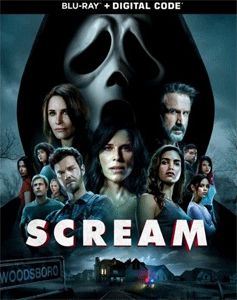
5. “Scream 5” (2022)
The first of the “requel” series – set in the same continuity, but with Gen-Z main characters taking the reins from the Gen-Xers – fully embraces the idea that tentpole films now exist because fans have almost directly asked for them. (When the saga started in the Nineties, Hollywood was still largely guessing about what people wanted.)
The good news is “Scream 5” – winkingly (I think) called “Scream” to mirror the trend of new films having identical titles to previous films – was a box-office hit. The bad news is there is a notable cynicism to the notion that filmmakers are armed to the teeth with data (and probably even metadata, no pun intended) about what its demanding and privileged fans want. That said, it does mostly deliver on those wants, crafting a tale of crazed “Stab” fan Richie (Jack Quaid), who aims to make his own “Stab” snuff film.
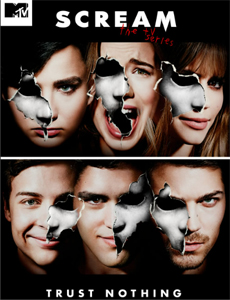
4. “Scream: The TV Series” Season 2 (2016, 14 episodes, MTV)
The TV series’ high point is also a high point of the 2010s boom of horror and murder-mystery TV. While not superior to artier shows like “Bates Motel” and “Hannibal,” the comparatively shlocky “Scream” was for a brief period more fun. Jumping onto IMDb’s (now-defunct) chat threads and watching the “Scream After Dark” talk show added to the fan-interaction experience.
The show itself improved as Blotevogel and her team decided to treat viewers – and by extension, characters — with more respect. For example, Final Girl Emma (Willa Fitzgerald) is now proactive in tracking suspects. Noah’s podcast, wherein he goes over clues and suspects, is a brisk blast of meta. The obvious nature of the final reveal prevents Season 2 from moving higher on this list; nonetheless, we have confirmation that “Scream” stories can play outside a movie theater.
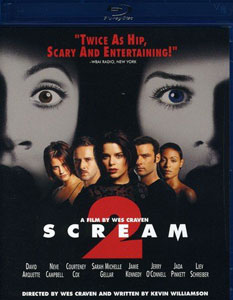
3. “Scream 2” (1997)
Now we get to the three entries that will be almost everyone’s top three. “Scream 2” is impressive for being turned around one year after the original. Appropriately, this is how every Eighties slasher film was greenlit – on the money-making strength of the previous one. But this is a notably elite sequel, as Williamson skewers second-film tropes. We also see an early example of the cultural feedback loop, as the cast becomes more diverse – and the black characters comment on this, natch.
The reason I don’t rank this higher is because Sidney (Neve Campbell) is at her most annoying here, freezing and failing to trust anyone, thus putting innocent people in danger (much as her wrongful accusation had put an innocent man in prison). Her heroine status was overrated for a long time – until she earns it in the requel series. That said, as a Final Girl, she is realistically scared, and Collective Soul’s “She Said” is the series’ best needle drop this side of “Red Right Hand.”
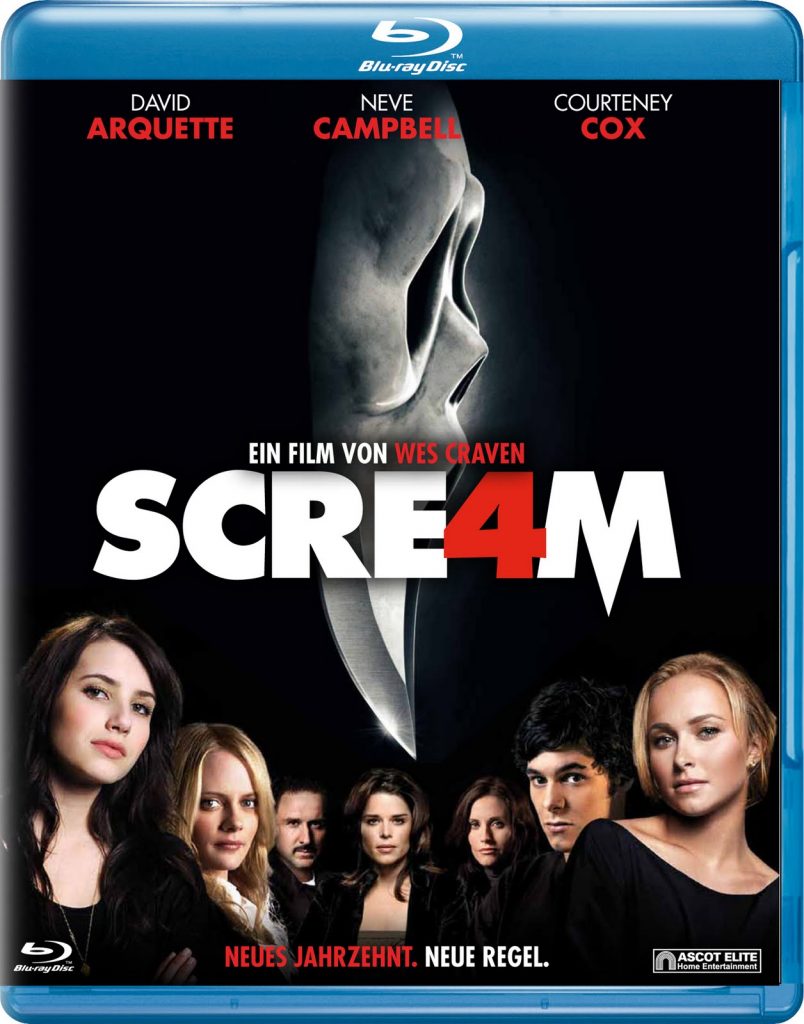
2. “Scream 4” (2011)
Williamson and Craven go out on a high note in an installment that’s being appreciated more as time goes by for its humor, its commentary on remakes (luckily the film itself is not a remake), and the rise of a culture wherein people can be famous for being famous. It takes “meta” as far as it can go while retaining storytelling zest.
Sidney’s latest long-lost relative (an against-type-at-the-time Emma Roberts) is irritated at Sidney for not using her victim status to earn fame and riches. The opening parade of familiar-faced millennial cameos in a string of “Stab” opening scares (along with, eventually, the real one) is Peak Scary/Funny. Also introducing Hayden Panettiere’s Kirby, a post-Randy horror-film nerd and now a series regular, “Scream 4” marks the point where the saga transcends its status as a snarky Nineties artifact to find legs as a franchise.

1. “Scream” (1996)
There had been attempts at meta-horror before, including a bit of “Halloween 6” and Craven’s own “New Nightmare.” Although the latter has been re-evaluated by some as a cult classic, there’s no question that Williamson is a better writer than Craven, thus making this a perfect marriage of skills: a proven helmer and a young scribe hungry to deconstruct slasher history.
Although we didn’t know it at the time, “Scream” would end up being different from most of the films it satirizes (“Halloween,” “Friday the 13th,” “A Nightmare on Elm Street”) by sticking with a core cast for quite a stretch, including Sidney (who some rank as the ultimate Final Girl because of her consistency with the franchise, and the doggedness with which she overcomes Ghostface), tabloid reporter Gale (Courteney Cox), and simpleminded-but-reliable cop Dewey (David Arquette).
An underrated aspect of “Scream’s” genius is that, despite being a satire, and despite making fun of the idea that reality takes its cues from Hollywood, it’s more centered in reality than most of the genre. Although the groundbreaking elements of “Scream” are now old hat, the details are so sharp (note the glances between the two killers) that its rewatch value remains higher than anything that has come since.

